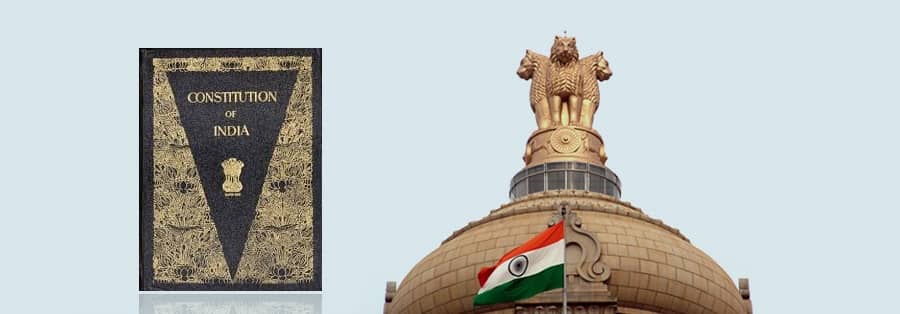A country’s constitution is sacred. It must not be disturbed unless legal procedure has been followed, and doing so might lead to problems. Nearly every Constitution has undergone periodic revisions to keep up with the passage of time, and India is no different. In truth, the Prime Minister and his Council of Ministers operate and administer India’s parliamentary system of government, which reflects the supremacy of the people’s will.
When the powers and functions of the President are evaluated within the constitutional framework, the position of the President in India appears to be comparable to that of the British monarch. Now, Article 53(1) of the Indian Constitution vests the executive authority of the union in the President and states, “It shall be exercised by him either personally or via officers subordinate to him in accordance with the Constitution.”
So, a thorough reading of Article 53(1) reveals that the subordinate officials are none other than the Prime Minister and his Council of Ministers, and if the President is allowed to exercise such authority at his discretion, India would soon be turned into a dictatorship of the President. To avoid this, Article 74(1) states that there shall be a Council of Ministers with the Prime Minister to aid and advise the President, and that such advice given by the Council of Ministers shall be binding on the President after reconsideration and shall not be questioned in any court of law.

Council of Ministers to aid and advice
The Council of Ministers is led by the Prime Minister, who is appointed by the President under Article 75(1), and it is the Prime Minister on whose recommendation the President selects the Ministers who comprise the Council of Ministers. As a result, essentially or by stated provision of the constitution, the Prime Minister and the Council of Ministers serve at the pleasure of the President under Article 75(2). Therefore putting the above statement in the laymen language, according to which, the President is the head of the Executive and works on the aid and advice of the Prime Minister along with his Council of Ministers and they hold office at the pleasure of the President.
(NOTE- Prior to 1976, there was no express provision in the Constitution that the President was bound to act in accordance with the advice tendered by the Council of Ministers, though it was judicially established that the President was not the real head ( executive ) but the constitutional head, who was bound to act according to the advice of ministers.[ Article 75(3) ]
The 42nd Amendment Act, 1976 amended Article 74(1) to clarify this position- which added the word “shall” which makes it obligatory for the President to act in accordance with ministerial advice. But by the 44th Amendment Act, a provisio was added in Article 74(1) which added some powers in which now President can send back the advice for reconsideration if required but after such reconsideration President has to follow that advice even the same. “ )
According to Article 75(3) of the Constitution, the Council of Ministers shall be collectively responsible to the House of People or the Lok Sabha since all advise provided by the Council of Ministers is for the benefit of the people of the country. As a result, the Council of Ministers is answerable to the House of People, and if the Council has the majority support in the House of People, the President cannot dismiss it. It has been incorporated to preserve the very sanctity of democracy.

Non-Justiciability of Cabinet Advice
The biggest question is with respect to the scope of Article 74(2) which restrains the courts from embarking an inquiry as to the nature of cabinet advice provided.
In S.R. Bommai v. Union of India, the Supreme Court defined the meaning of Art. 74(2). No court concerns about the Minister’s advice to the President. The court is solely interested with the order’s legitimacy, not with what happened in the President’s and Minister’s inner councils. An order cannot be challenged because it is not in accordance with the Minister’s advice or is based on no advice. If the President acts without, or contrary to, the advice offered to him in a specific situation, there may be grounds for impeachment, but it is the President’s conduct as far as the court is concerned. Article 74(2) safeguards the confidentiality of the President’s and his Council of Ministers’ deliberations. When the President’s act or order is challenged in court, it is up to the Council of Ministers to justify it by revealing the material that formed the basis of the act/order. The court will not look into the adequacy of the material. Material will not become advice just because it was provided as a support to the advice.
Conclusion
The position of the President becomes more relevant when there is instability and no majority. If the President is always bound by ministerial advice, the provision rendering him responsible for the maintenance and protection of the Constitution would be an irregularity and it is very unfair for a central authority like the President not being able to exercise such discretion. The only conclusion is that, the part of Art. 74(1) which makes the ministerial advice binding on the President is merely directory in nature.
In Britain, it is a convention that the monarch acts on the advice of the Ministers. An attempt has been made in India to codify this convention, but in reality, it remains a convention and does not become a legally enforceable injunction. It might be inferred that Articles 74 and 75, which deal with the composition and status of the Council of Ministers, are quite broadly defined. The founders of the Indian Constitution left certain subjects unexplained so that they may be handled by practises and conventions, which are significant sources of law.
